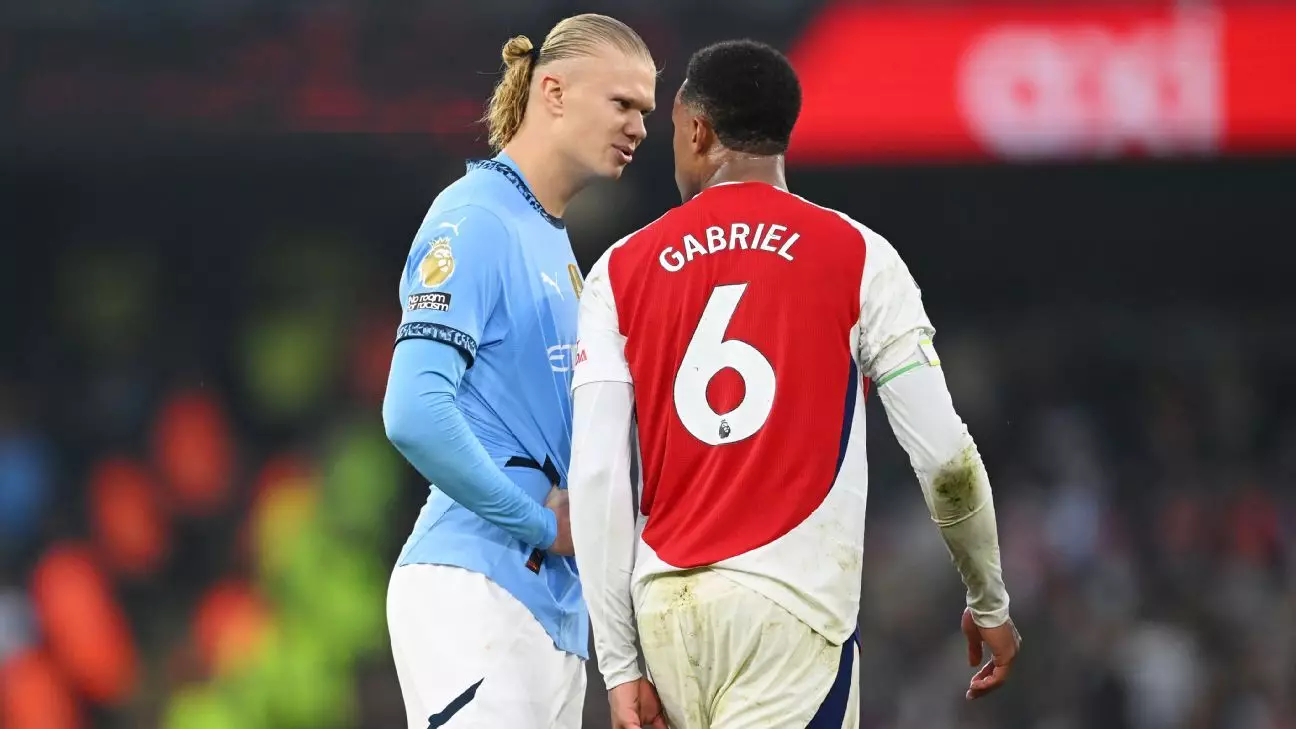In a thrilling encounter at the Etihad Stadium on Sunday, Manchester City managed to equalize against Arsenal, resulting in a dramatic 2-2 finish. However, the match was not without its controversies. Following John Stones’ stoppage-time equalizer, a notable incident occurred when Erling Haaland threw the ball at Arsenal defender Gabriel Magalhães. This action became a focal point of discussion post-match, as fans and pundits alike scrutinized whether it warranted disciplinary action.
Despite the cameras capturing the moment, on-field referee Michael Oliver failed to observe Haaland’s action, leaving it to the video assistant referee, John Brooks, to analyze the play. Ultimately, Brooks deemed the incident insignificant enough to avoid classifying it as violent conduct, adhering to the game’s established standards. This decision sparked varying opinions among fans and analysts, with some arguing that such behavior undermines the integrity of the sport. However, a source conveyed to ESPN that the Football Association (FA) is satisfied with how the matter was handled during the match, leading to the conclusion that Haaland will face no further punishment.
Tensions continued to simmer beyond the final whistle. Haaland, who had initially put City ahead earlier in the match, became embroiled in heated exchanges with both Arsenal manager Mikel Arteta and striker Gabriel Jesus. Reports revealed that City players felt frustrated by what they viewed as time-wasting tactics employed by Arsenal, particularly following the sending-off of Leandro Trossard which left Arsenal with ten men. Defender Manuel Akanji voiced this upset, highlighting that players routinely went to the ground and utilized strategic delays to slow the game’s pace.
Haaland’s confrontation with Arteta, where he urged the Arsenal manager to “stay humble,” marked a significant moment as tensions flared. The Norwegian striker didn’t stop there; he also directed insults at Jesus, repeatedly calling the Arsenal forward a “clown.” This moment exemplified the heightened tempers on the pitch, inevitably drawing attention to the emotional rollercoaster that players experience during such tightly contested matches.
As Manchester City navigates the aftermath of this intense clash, manager Pep Guardiola faces challenges regarding his squad selection. With their upcoming Carabao Cup clash against Watford looming just 48 hours later, Guardiola has to make crucial decisions about his lineup. The absence of Kevin De Bruyne due to a thigh injury adds another layer of difficulty to his planning. The City boss is hopeful that De Bruyne’s recovery will be swift, but his potential absence underscores the complexities that arise from a congested fixture schedule.
The incidents surrounding Haaland’s actions at the Arsenal match represent a microcosm of the emotional intensity that professional football embodies. As players and coaches navigate the pressures of high-stakes environments, their reactions can often lead to controversies that ripple beyond the pitch. The handling of such situations will continue to influence discussions regarding sportsmanship and referee authority, holding significance not only in the context of this singular match but also in the broader landscape of football.
